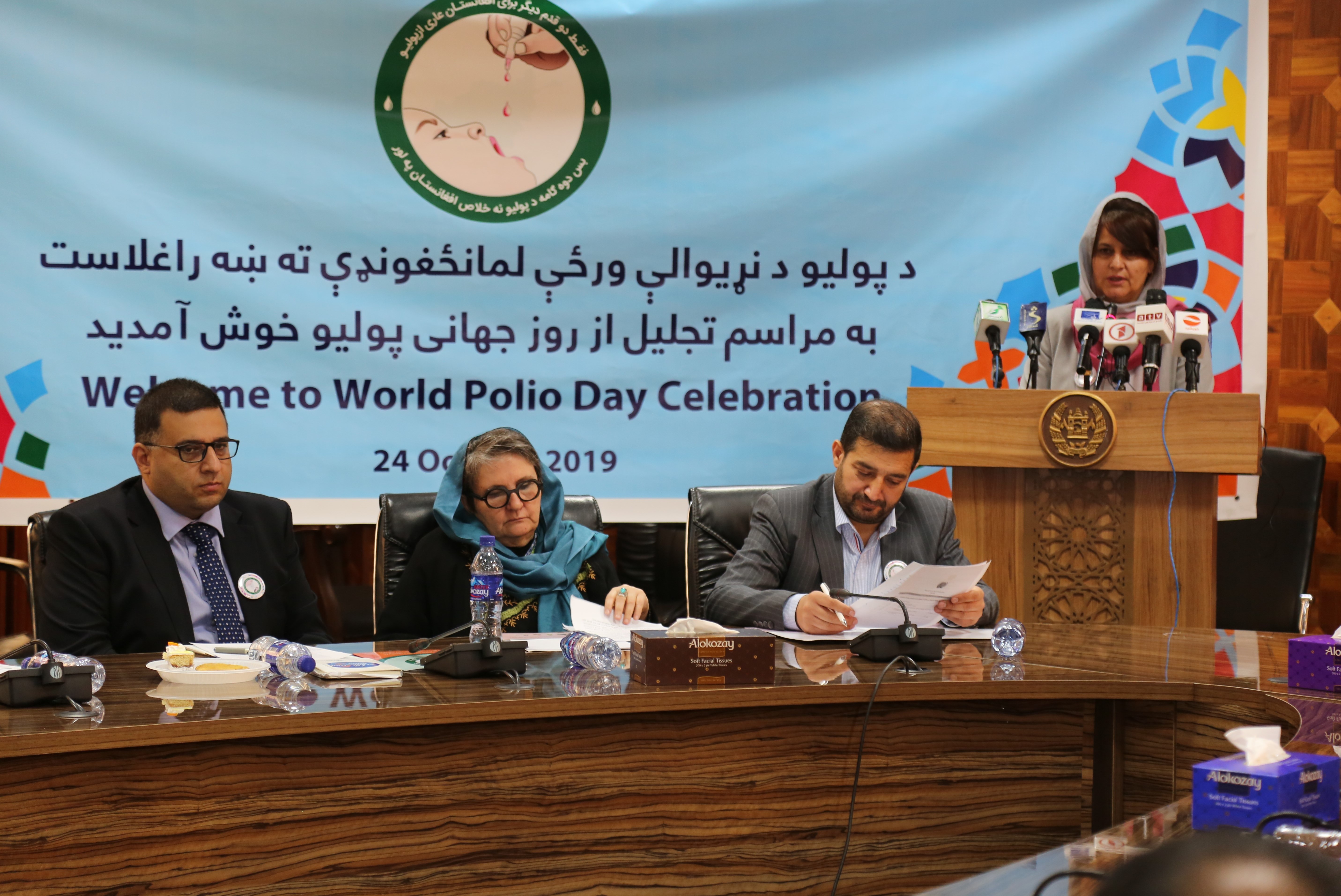
KABUL, Afghanistan, 24 October 2019 – As the world commemorates World Polio Day, the Ministry of Public Health, UNICEF, WHO and partners are taking a moment to recognize the tremendous efforts made by polio eradication frontline workers who continue to work under difficult and challenging conditions to reach every child with two drops of polio vaccine.
“We have a large number of workers who have dedicated their whole career to eradicating polio and saving children from life-long paralysis, sometime even risking their lives,” said Dr Zubari Wadood, WHO team lead for polio programme in Afghanistan. “Despite significant progress, we are facing critical challenges in the final mile towards eradication in Afghanistan. Most parts of Afghanistan are free of poliovirus and the disease remains only in fa ew pocket districts, which present substantial challenges towards consistently reaching all the children with the vaccine.”
Since 2016, the polio programme in Afghanistan has provided millions of doses of oral polio vaccine to children. This has been made possible with incredible work undertaken by frontline workers. Nevertheless, a lot of work still needs to be done to interrupt the circulation of poliovirus in the hotspot provinces of Kandahar, Helmand, Uruzgan Kunar and Nangahar.
In 2017 and 2018, polio cases were on the rise and unfortunately, up until October 2019, the total number children paralyzed in that year reached 19. These children were mostly from southern Afghanistan with 2 children from the eastern region.
Vaccinating every child through multiple doses of the polio vaccine is the only way to stop the polioviruses currently in circulation. It is a collective responsibility. Donors have committed the necessary funds; the government and partners are working together to ensure vaccine availability and polio eradication workers are going beyond in challenging environments to reach children with vaccines. Now, it is the responsibility of parents and communities who must ensure that their children are protected against polio.
“Polio eradication is technically feasible and operationally possible,” said Dr Zubair Wadood. “We have overcome such challenges before by working closely with all the partners to implement strategies for strengthening immunization coverage and surveillance and we are doing it again with even higher commitment and enthusiasm to eradicate polio, for all the children of Afghanistan, for all the hard-working people of Afghanistan and for the future of our world."








